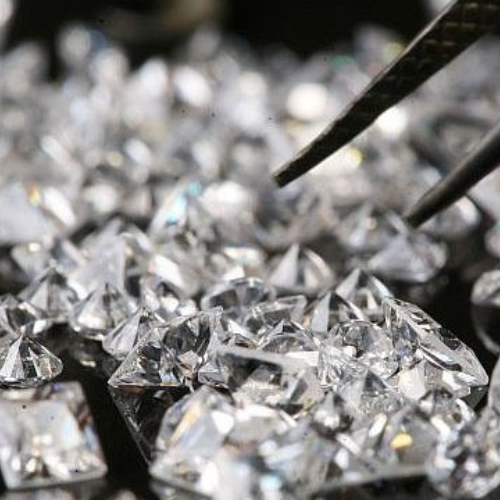The Central African Republic (CAR) is pushing for the complete removal of the diamond export ban that has been in place for more than a decade. This embargo was imposed after the country descended into a civil war in 2013, following years of political instability, coups, and violent conflicts. The CAR hopes that the Kimberley Process (KP), the international body that oversees the diamond trade, will end the restrictions on its diamond exports at its plenary session in Dubai this week.
The Current Situation in the Central African Republic (CAR)
The CAR has suffered years of instability due to political struggles and violence. Since 2013, the country has been embroiled in a civil war that has caused widespread destruction and loss of life. However, despite these challenges, the CAR government believes that the time has come for the international community to lift the embargo on its diamond exports.
Mines and Geology Minister Rufin Benam Beltoungou spoke at the opening session of the Kimberley Process plenary in Dubai. He emphasized that the CAR government had worked hard to restore peace and meet the conditions required to end the embargo. According to Beltoungou, the security situation has improved in many parts of the country, and the minimum traceability requirements for diamonds have been met.
The Kimberley Process, which monitors the trade of diamonds to prevent “blood diamonds” (diamonds mined in war zones or areas controlled by rebel groups), had placed restrictions on the CAR’s diamond exports due to the civil war. These restrictions were meant to prevent diamonds from being used to fund armed groups or conflict. However, Beltoungou argued that, following a visit by KP experts in September, the country had made significant progress in meeting the required standards.
The Struggles of the Diamond Industry
Diamonds are one of the CAR’s most valuable natural resources, along with gold. Before the conflict, the country earned millions of dollars each year from its diamond exports. In 2011, for example, the CAR earned around $50 million from diamond sales. However, after the conflict began, this revenue sharply declined. Last year, the country earned only about $500,000 from diamond exports.
Critical Impact of Deferred Sanctions on Russian Diamonds: India and EU to Benefit
The CAR government has also pointed out that the sanctions have had a devastating effect on local miners and communities. While a third of the country’s diamond mining zones are now considered “green” zones (areas that meet Kimberley Process standards and are allowed to export diamonds), many other areas remain under embargo. This has made it difficult for people in the affected regions to make a living. Many of the miners in these areas continue to work under dangerous and illegal conditions, with the diamonds they produce ending up in the black market or being sold through contraband channels.
Luc Florentin Simplice Brosseni Yali, the director of the Kimberley Process permanent secretariat in the CAR, pointed out that while the government has worked hard to restore order, the sanctions have only hurt the legitimate government and its people. Rebel groups, which continue to control parts of the country, are not affected by the embargo and continue to mine and sell diamonds illegally. Brosseni Yali suggested that lifting the embargo could help the country regain some economic stability and reduce the influence of armed groups by giving young people an alternative to joining militias.
Local Impact and International Efforts
The impact of the diamond embargo on the people of the CAR is clear. During the Kimberley Process assessment mission, local residents, including women and young people, were seen pleading for the restrictions to be lifted. According to Brosseni Yali, the residents are hoping that ending the embargo will allow them to return to work in the diamond mines legally and improve their livelihoods.
Although the CAR government has made efforts to regain control and ensure that diamond mining is done according to international standards, the situation remains fragile. The United Nations reports that while the security situation has improved in some areas, there are still violent clashes between armed groups over control of mining sites and key roads. The International Monetary Fund also highlighted ongoing challenges, including an unfavorable business environment and continued insecurity in certain parts of the country.
Despite these issues, the CAR government remains optimistic. President Faustin Archange Touadera has also called for the full lifting of the diamond embargo, stating that the country is now relatively stable and has made significant progress in rebuilding its institutions. However, the United Nations remains cautious about the overall security situation, pointing out that armed groups still control parts of the country and continue to create challenges for the peace process.
The Kimberley Process meeting in Dubai will be critical in determining whether the international community will support the CAR’s request. As the government continues to push for the lifting of sanctions, the people of the CAR are hoping for a brighter future where they can rebuild their country and economy without the burden of international restrictions.


